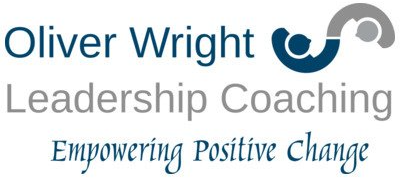Feedforward
Future focused feedback for positive development
The importance of feedback
Feedback is a critically important part of delivering effective leadership. It is necessary to be able to give effective feedback and receive feedback well, as a learning moment with a positive growth mindset.
For most people I think, feedback is both difficult to receive, particularly if given poorly and difficult to give. It is particularly difficult to give feedback well and for it to be a positive experience for the giver and receiver of the feedback.
When we hear feedback that challenges our view of ourselves, we have a natural tendency to feel we are under attack by the feedback. This is particularly true if the negative feedback received goes against a strong view, we have of ourselves and therefore challenges our ego.
When we react badly to feedback, we tend to stop listening and we are no longer present, therefore we stop learning. The person receiving the feedback may not really hear or be able to process anything you say immediately after giving the feedback.
So, it’s difficult and it can go wrong, but we do need to give feedback, both positive and negative so we have to work on how we do it as well as we possibly can. What does effective feedback look like and what are the key ingredients?
Feedback is not just for Annual Reviews!
There are so many organisations that still operate the tick box annual / half yearly review model. With tortuous forms to be filled in and awkward annual review meetings to be had for many.
Those leaders or managers who feedback regularly and have good relationships with their team do not need the annual or half yearly review.
Those leaders who are underperforming and bad at their job need to change their leadership style, not sit a room once a year giving out of date and stilted feedback on a person’s performance who they haven’t spoken to meaningfully all year.
“In a survey of 30,000 employees, only 29% claimed to know if they were doing a good job based on reviews from their bosses. CEB research found that more than 9 in 10 managers are dissatisfied with how their companies conduct annual performance reviews, and almost 9 in 10 HR leaders say current appraisal models don’t yield accurate information. When it comes to helping others succeed, traditional feedback hardly draws rave reviews.” (Hirsch)
Specific feedback focused on growth
Feedback should be a regular, ongoing part of a relationship feedback should be focused on the things that will make a difference to a person’s behaviour and performance, specifically for the individual in question.
It should be focused on helping deliver change that makes a difference in their job and helps them grow into future roles.
Feed Forward
This is where a different way to think about and practice feedback, which is focused on the future. Feed Foward can be really powerful.
“Feedforward is a unique approach to giving feedback that improves performance, boosts productivity, and keeps teams on track. Unlike traditional feedback, feedforward is timely, continuous, and focused on development – a refreshing change from the typical feedback fare that rarely makes a positive difference or offers much insight about how work gets done.” (Joe Hirsch,)
This approach differs from the traditional approach to feedback, in that it focuses on the future and future development, rather than getting bogged down in what went wrong or right in the past, which doesn’t help development and growth into the future.
Traditional Negative feedback focuses on shortcomings, and behavioural issues that occurred in the past
Negative Feedforward:
- Focuses only on those behaviours may affect future performance, success, or achievements.
- Focus is on correcting or neutralising behaviours that may get in the way of your future development and progression.
- It has a future focused emphasis on the benefits of changing or stopping behaviours, rather than critiquing the behaviour.
- The person is motivated by future benefits of modifying or stopping these behaviours.
Traditional positive Feedback focuses on past successes or desired behaviour, a well done or a good job.
Positive Feedforward:
- Focuses on future benefits of behaviours that will enhance outcomes and results
- Will help the person achieve their career and performance goals.
- Understands why developing an area of strength or putting more time and effort into something can benefit them or the team in the future.
The core elements to feedforward are:
- The feedback given should be timely, continuous and specific,
- Focused on future development
- Action orientated.
There are also some other key elements to giving effective feedback which are the strength of the relationship, where you give feedback, and your body language, tone of voice and facial expressions.
The Relationship
Ideally you need to have a good relationship with the person you are giving feedback to, built on mutual respect and with a level of trust.
You need to build rapport, listen, and ask open questions, the fundamentals of coaching, to get an understanding of the persons ego state and pinion of themselves and where they see their strengths and weaknesses.
You need to respect them as an individual and ideally, they need to respect you and to know that you have their best interests at heart. These are key building blocks for a relationship in which feedback has the best chance of been taken in the spirit of learning and growth rather than criticism and threat.
Body language, facial expression, and tone of voice
The person receiving feedback will have heightened awareness of any signs that you don’t mean what you say, or that you are angry or disappointed when giving the feedback. This will cause a defensive reaction and will not help you land your feedback nor help the receiver grow and develop.
It is important that you control your body language, facial expressions, and one of voice to give feedback in a neutral or positive way so that the words are what carries the weight and meaning, giving the receiver has a better chance of taking the feedback neutrally or positively.
Thinking about how give the feedback is as important as what you say. Being present, self-aware, and making sure you are relaxed when giving feedback will help you achieve the right tone and approach.
The mindset that you have is really important, it should be one of helping the person learn and change rather than one of disappointment, anger, or frustration.
Place and Time
Feedback should be giving at the appropriate time in the appropriate setting.
Where you should give feedback, it is partly dependent on your relationship and the nature of the feedback, but always make sure it is sufficiently private, quiet, and away from the desk and daily work. If it is serious negative feedback that is touching on a potentially difficult area, then this should be more formal and structured, and you should leave plenty of time. Other feedback can be given over coffee or in a short meeting but as long as you focus on feedback and learning.
In terms of timing, this should not be immediately after the event or witnessed behaviour, unless it is a quick “well done”, any more detailed feedback needs to be done after a small gap in time. But just as importantly it should not be left for too long. This reduces the ability to accurately recall and reduces the impact because it is less vivid in the mind of the receiver.
So ideally you are looking at feedback being given regularly and close in time to the events or behaviour in question. I would want to have feedback given within a few days ideally, and no more than 10 days out. That way it is fresh in people’s minds and the recall is easy for both parties and how things “felt” can still be accessed, which is important.
Feedback early feels relevant and important and not an afterthought or tick box exercise in a scheduled annual or half yearly review. If it’s worth giving feedback on, it’s worth doing now.
Specific and relevant areas for development
Managers should focus in on the details and behaviours that matter and not worry about feedback on those that don’t or that are not critical to job performance or future development potential.
Keeping feedback specific, focused, and regular makes it easier to give richer more relevant feedback and makes it more actionable.
Actionable Feedback
By keeping feedback specific and forward looking it becomes easier to also make the feedback actionable. It must be something that the receiver can do something with.
Broad based generic comments or platitudes are not helpful because the receiver can’t action a change…either stop or develop.
You should be aiming not to overwhelm people with lots of areas of change or with big steps, rather think about how to break down feedback into actionable chunks that are uncomplicated steps on the road to improvement and that can be demonstrated, measured, and reviewed.
For example, if we are trying to work on a behavioural change to improve someone’s collaboration with others, we need to break this down into less daunting and more actionable feedback objectives than “You need to be more collaborative”, by building a plan of actions that will lead to greater collaboration. For example, the first two steps could be:
1. Bring one issue or question to each team meeting and ask for input
2. Join a project team that needs your specific skills to help resolve an issue







